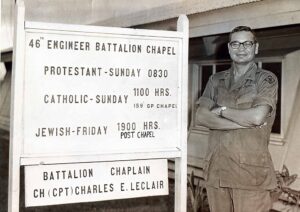
BAGHDAD (BP)–Clergy-backed Shiites and independence-minded Kurds enjoyed victory in Iraq’s Jan. 30 elections, according to final results released Feb. 13.
The 48 percent of the vote won by a Shiite coalition known as the United Iraqi Alliance and the 26 percent won by a coalition of Kurdish parties gives power to the two groups that suffered most severely under Saddam Hussein’s regime. The Iraqi List, the secularly minded slate of candidates led by interim Prime Minister Ayad Allawi, finished third with 14 percent.
Many Sunni Arabs, who make up approximately 20 percent of Iraq’s population, did not participate in the elections, either out of fear of violence or in support of a boycott called for by radical Sunni clerics.
Results were expected to be certified within three days, after which time seats in a 275-member national assembly will be distributed.
President Bush congratulated Iraqi candidates and voters on taking an important step toward democracy.
“Two weeks ago, more than 8 million Iraqis defied terrorists and went to the polls,” Bush said in a Feb. 13 statement. “The world saw long lines of Iraqi men and women voting in a free and fair election for the first time in their lives. The United States and our coalition partners can all take pride in our role in making that great day possible.
“Today, the provisional results of the election have been announced. We still await their review and certification. I congratulate the Iraqi people for defying terrorist threats and setting their country on the path of democracy and freedom. And I congratulate every candidate who stood for election and those who will take office once the results are certified.”
The United Iraqi Alliance received just over 4 million of the more than 8 million votes cast, which will translate into approximately 140 seats in the national assembly. The Kurdish coalition, known as The Kurdistan Alliance, received 2,175,551 votes and will end up with approximately 75 seats.
The victorious Shiite ticket may owe its success to the support of Iraq’s clerics, including the Grand Ayatollah Ali al-Sistani, according to the Associated Press. Shiites, who make up approximately 60 percent of Iraq’s population, see the newly elected government as an opportunity to translate their majority status into political power after being oppressed under Hussein.
Although the United Iraqi Alliance included some Sunni candidates, most Sunni politicians fared poorly. The slate headed by interim President Ghazi al-Yawer claimed only 150,680 votes while the ticket headed by prominent Sunni politician Adnan Pachachi won fewer than 13,000 votes, the AP reported.
It appeared that a total of 12 coalitions would claim seats.
Once in place, the national assembly will elect a president and two vice presidents by a two-thirds majority. The three leaders will then choose a new prime minister subject to assembly approval. The national assembly also will write Iraq’s constitution, which will be approved by a referendum. The referendum will be followed by another round of elections in December.
The poor Sunni turnout has caused some experts to fear continued Sunni-led insurgency. But failure of the Shiites to capture the two-thirds majority needed to control many key votes could force the Shiites to cooperate with other political groups.
Finance minister Adel Abdul-Mahdi, a Shiite thought to be a contender for prime minister, told the al-Arabiya news service that the next Iraqi government is burdened with “difficult and complicated responsibilities that require national unity and the wide support of the national assembly” and the presidency. He said his alliance is “seeking to realize a wide national harmony” in the new government.
Iraq’s electoral commission reported that 8.55 million voters, or 58 percent of registered voters, went to the polls.
–30–













